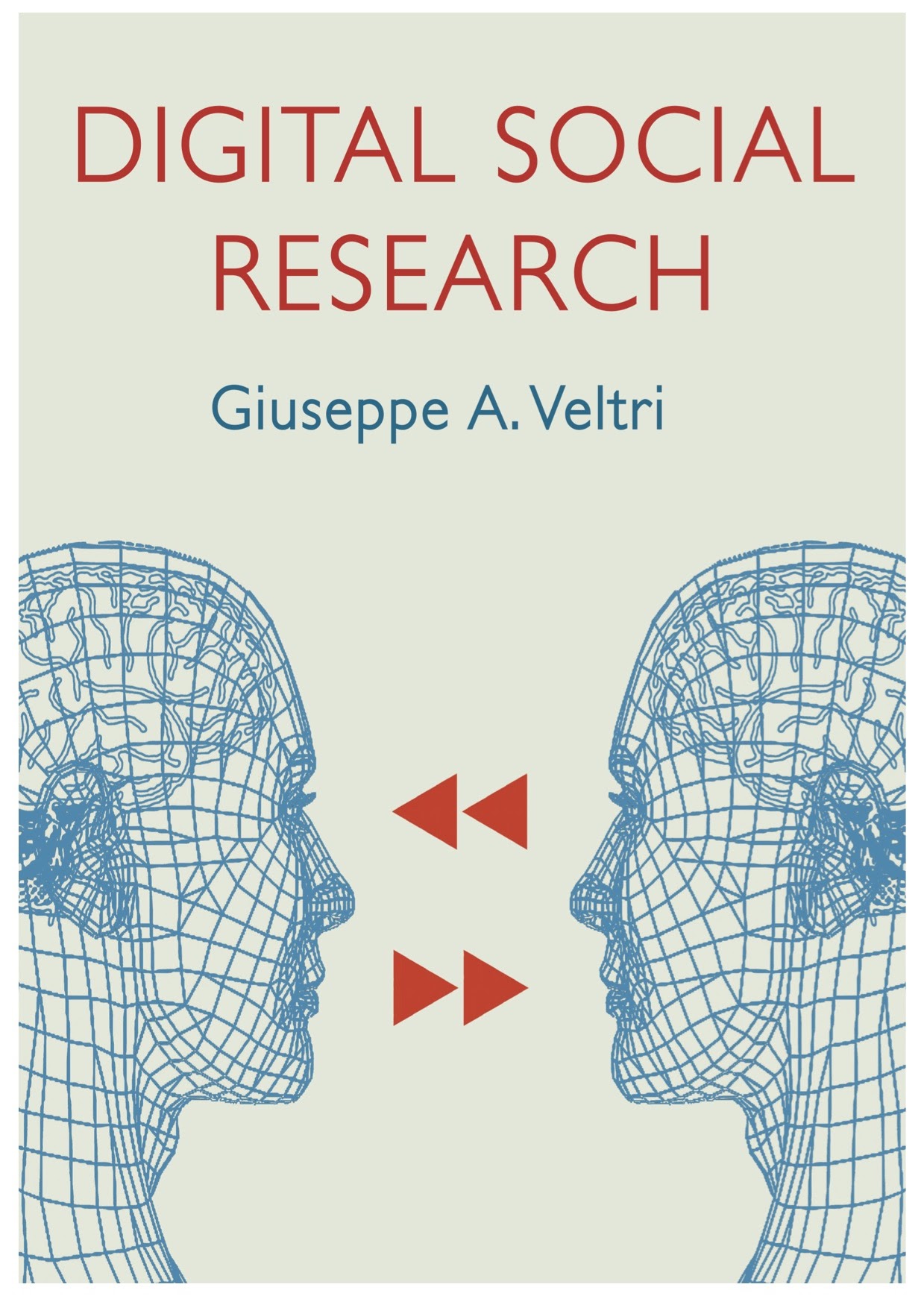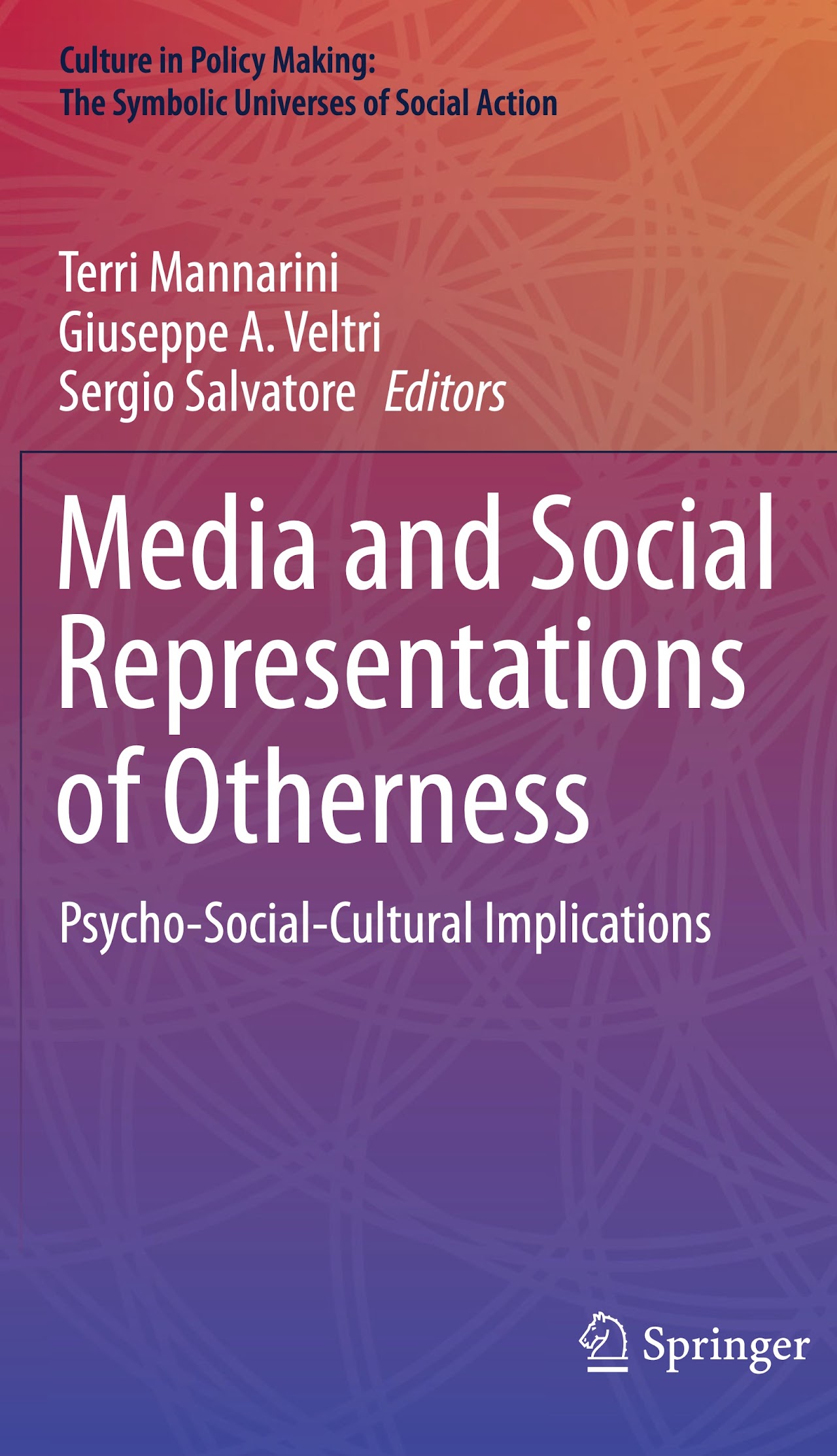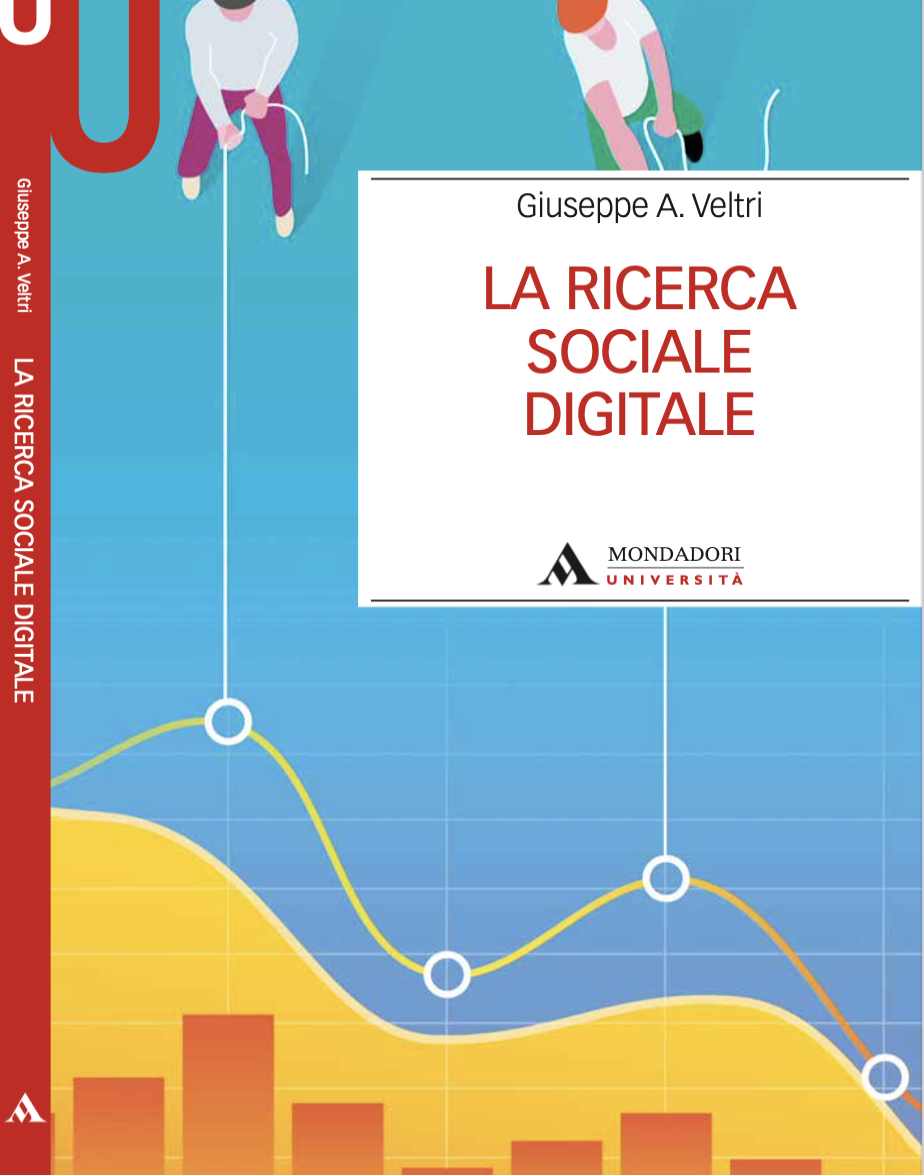Books
International books
Methods and instruments in the study of meaning-making (Springer, 2023)
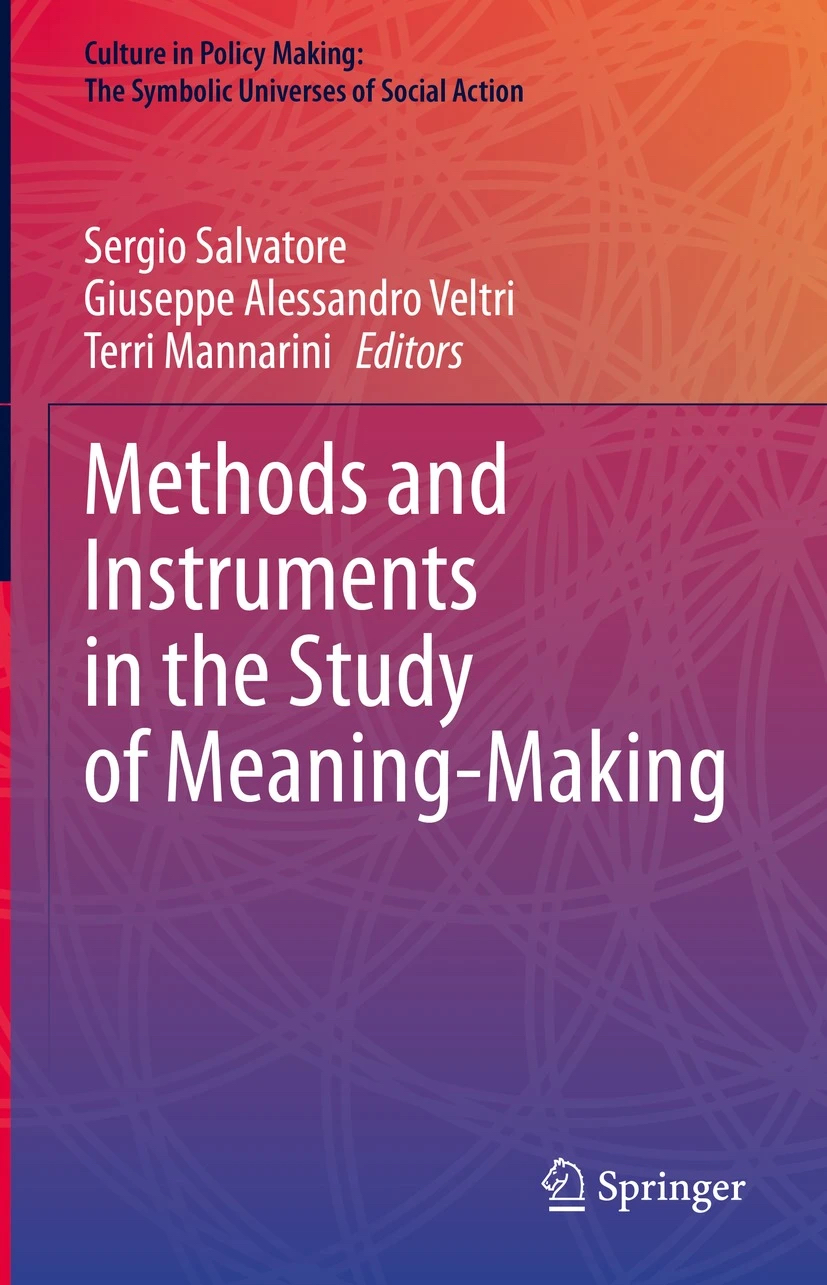
Edited book with Sergio Salvatore and Terri Mannarini.
This volume develops a theoretical framework for the modelling of meaning-making and cultural processes as crucial to the scientific study of contemporary complex societies. It focuses on the methodological and empirical aspects of the analysis of culture and its dynamics that could be applied to policymaking and to the understanding of social phenomena. It covers culture-based segmentation, ad hoc survey instruments like the VOC and PROSERV questionnaires, discourse flow analysis, the Homogenization of Classification Functions Measurement, and others. It also presents a detailed discussion of the methodology of cultural analysis in contexts of health and education. The volume showcases a top-down approach by including quantitative methods and/or automatized or semi-automatized procedures, and at the same time supports a hermeneutic, bottom-up, abductive approach, focused on the situated dynamics of meaning-making. It provides insights from cultural studies, social statistics, social policy, and research methodology in the social sciences. This is a useful resource for academics involved in studying cultural dynamics and for policy-oriented researchers and decision-makers who are interested in cultural dimensions of the design, implementation and reception of public policies.
Symbolic Universes in Time of (Post) Crisis (Springer, 2019)
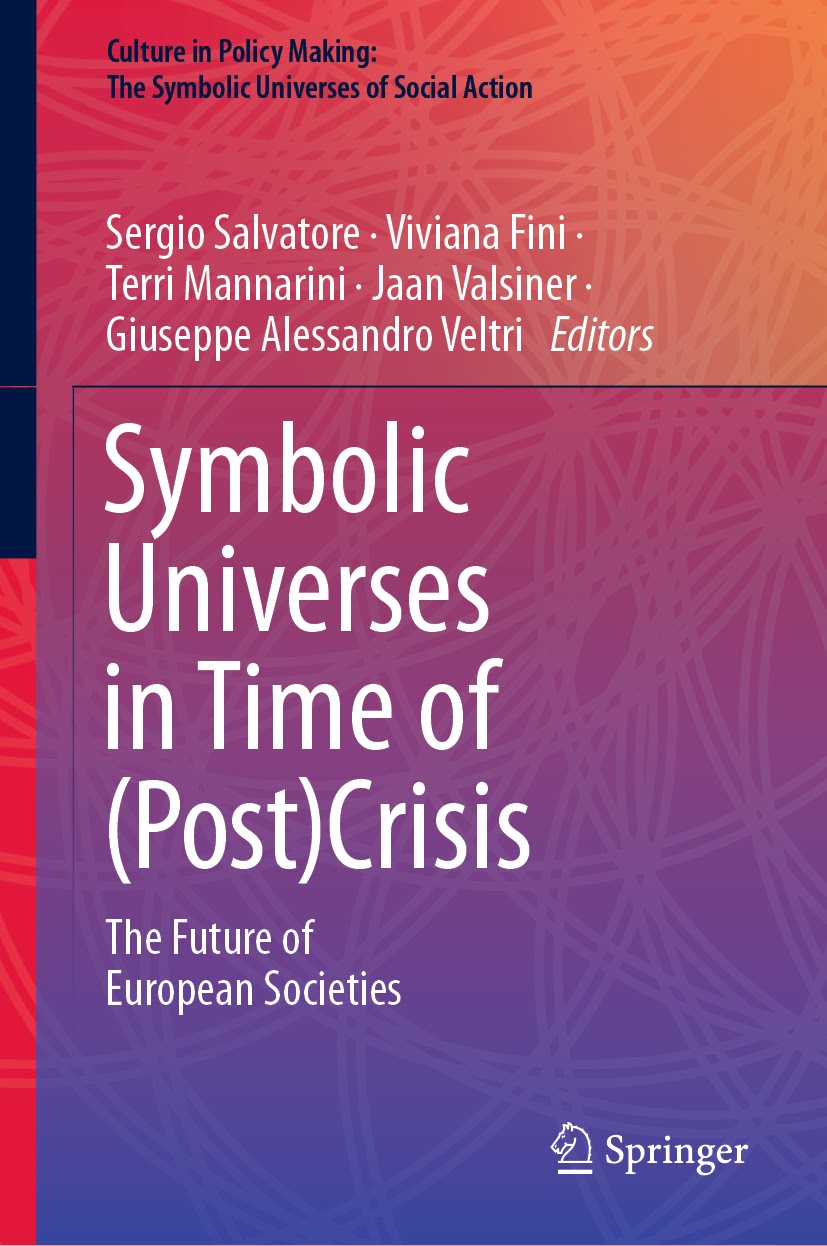
Edited book with Sergio Salvatore, Viviana Fini, Terri Mannarini e Jaan Valsiner.
This book investigates whether, how and where the cultural milieu of European societies has changed as a result of the socio-economics crisis. To do so, it adopts a psycho-cultural approach, which views the cultural milieu as a set of meanings, placing the generalized image social actors have of themselves, the world, events and their relationships in the context of the socio-political and institutional environment, including policies. By analyzing the changes in cultural milieu and social identity, the book develops strategic and methodological guidelines for the design of post-crisis policies, providing a concept of how the cultural dynamics are associated with certain individual characteristics and specific socio-economic phenomena.
Routledge Handbook of Contemporary Italy (Routledge, 2015)
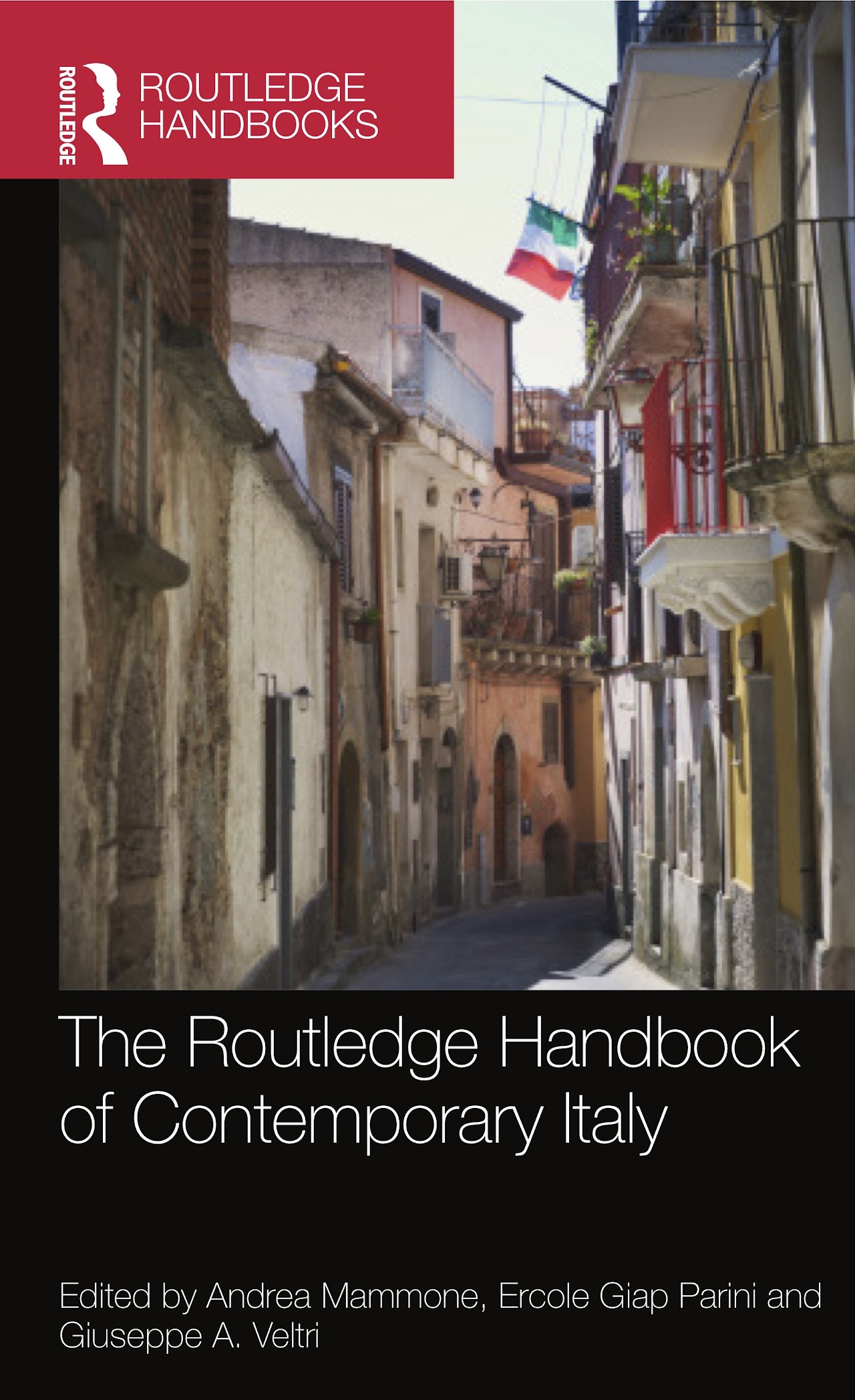
Edited book with Andrea Mammone e Giap Parini.
Selected for the Outstanding Academic Title (OAT) Award 2017 by CHOICE magazine.
The Routledge Handbook of Contemporary Italy provides a comprehensive account of Italy and Italian politics in the 21st Century. Featuring contributions from many leading scholars in the field, this Handbook is comprised of 28 chapters which are organized to deliver unparalleled analysis of Italian society, politics and culture. A wide range of topics are covered, including:
Politics and economy, and their impact on Italian society
Parties and new politics
Regionalism and migrations
Public memories
Continuities and transformations in contemporary Italian society.
This is an essential reference work for scholars and students of Italian and Western European society, politics, and history.
Italy Today, the sick man of Europe (Routledge, 2011)
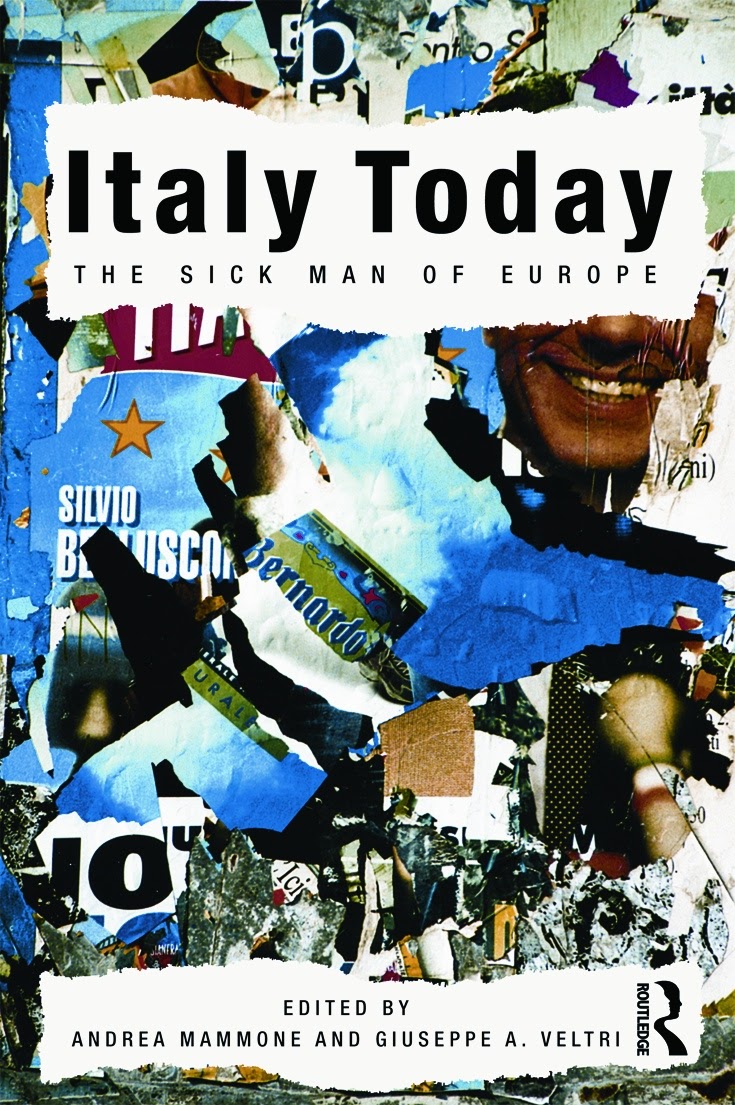
Edited book with Andrea Mammone
Italy Today represents one of the most comprehensive examinations of contemporary Italy. It is a provocative and an innovative collection that aims to highlight the current ‘crisis’ of the country through an analysis of several different ‘dark shadows’ of contemporary Italian society.
Italy already had a long history of ‘unsolved’ issues, several chronic problems and contradictions that have been ignored for a very long time, during which they have assumed dramatic proportions and gravity. The peninsula has now become the ‘Sick Man of Europe’, a country facing a veritable decline also caused by apparent incapacity and difficulties of the ruling economic, political and social elites.
Discussions include:
an evaluation of the current predicaments of the political system
analysis of emerging mafias, including new powerful crime organizations such as ’Ndrangheta
issues surrounding the ongoing presence of Fascism
examination of the recent xenophobic tensions
discussion of problems associated with the missed opportunity of the EU funding, and the increasing regional economic gaps
outline of the systemic troubles of Italy’s economic and industrial system.
Written by leading experts in the field and covering a wide range of topics, this collection is essential reading for all those seeking to understand the issues and problems that are facing contemporary Italy.
“The scandals, speeches, sex, and partisan scheming of Italian political life have always grabbed media attention. Yet the central question of Italian politics often goes unasked: How did the most successful country in postwar Europe become a basket case? […] The interdisciplinary group of authors in this collection sets aside short-term factors and explores long-term structural reasons for Italia malata (ailing Italy). They offer new insights into well-known problems […]. They also highlight problems known only to experts: little government support for families, the spread of organized crime outside of Naples and Sicily, low levels of social trust, and anti-immigrant sentiment.” - Andrew Moravcsik (Princeton University), Foreign Affairs
“Faced with the attention-seeking antics of Silvio Berlusconi and his political allies, increasingly the temptation is not to treat Italy seriously. The great achievement of the contributors to this excellent volume is to reach behind the façade of political posturing to show that Italy does matter, because the failure of Italy’s political system to come up with solutions to the chronic problems facing the country today poses questions that are relevant to all advanced democracies. Italy today, but where next?” - John Davis, University of Connecticut
“Written by well known specialists and young researchers from Italy or outside, this book is dedicated to Contemporary Italy, considered as the sick man of Europe. All the aspects of its decline are studied in an interdisciplinary approach.’’ - Marc Lazar, Sciences Po, Paris, France
Libri in italiano
La sociologia cognitiva, concetti e metodi (Meltemi, 2021)
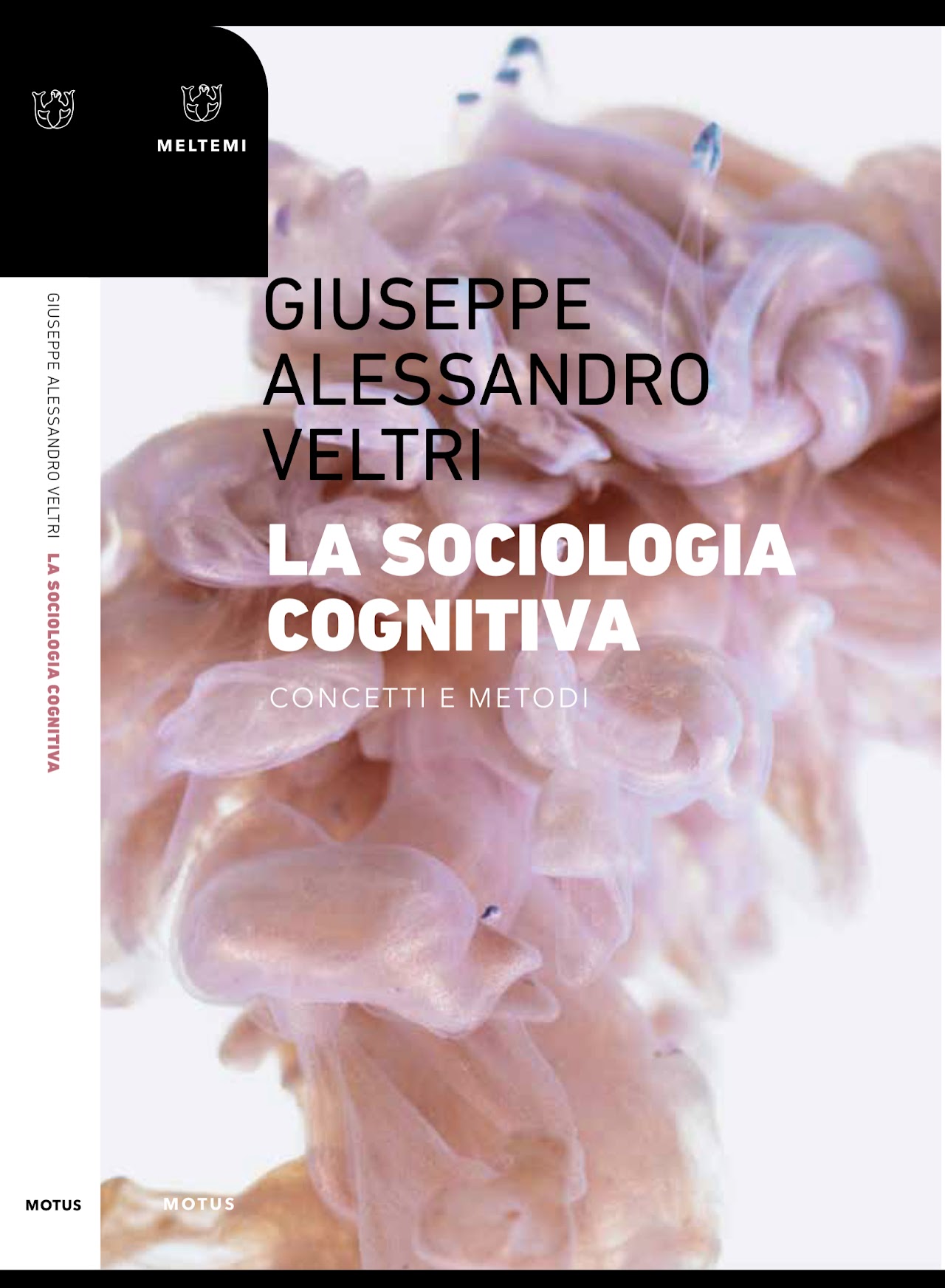
Negli ultimi anni è accaduto qualcosa di interessante alla ricerca sociologica contemporanea. Il dialogo tra sociologia, scienze cognitive e psicologia ha portato alla rivisitazione di alcuni assunti fondamentali nel campo del comportamento umano. Un esempio di questa contaminazione è stato il modello duale della cognizione umana, cioè la distinzione tra pensiero veloce/automatico e pensiero lento/deliberato, che ha fornito ai sociologi un modello comportamentale più credibile.
Questo volume invita la ricerca sociologica a riflettere su quali assunti e modelli poggia la cognizione umana. Ma tale riflessione riguarda anche fondamentali aspetti metodologici: il rinnovamento concettuale suggerito dalla sociologia cognitiva “embodied”, per esempio, permetterebbe alla ricerca una maggiore capacità esplicativa.
Disponibile qui e sui maggiori negozi di libri online.
Scienza in vendita: Incertezza, interessi e valori nella politiche pubbliche (Egea, 2018)
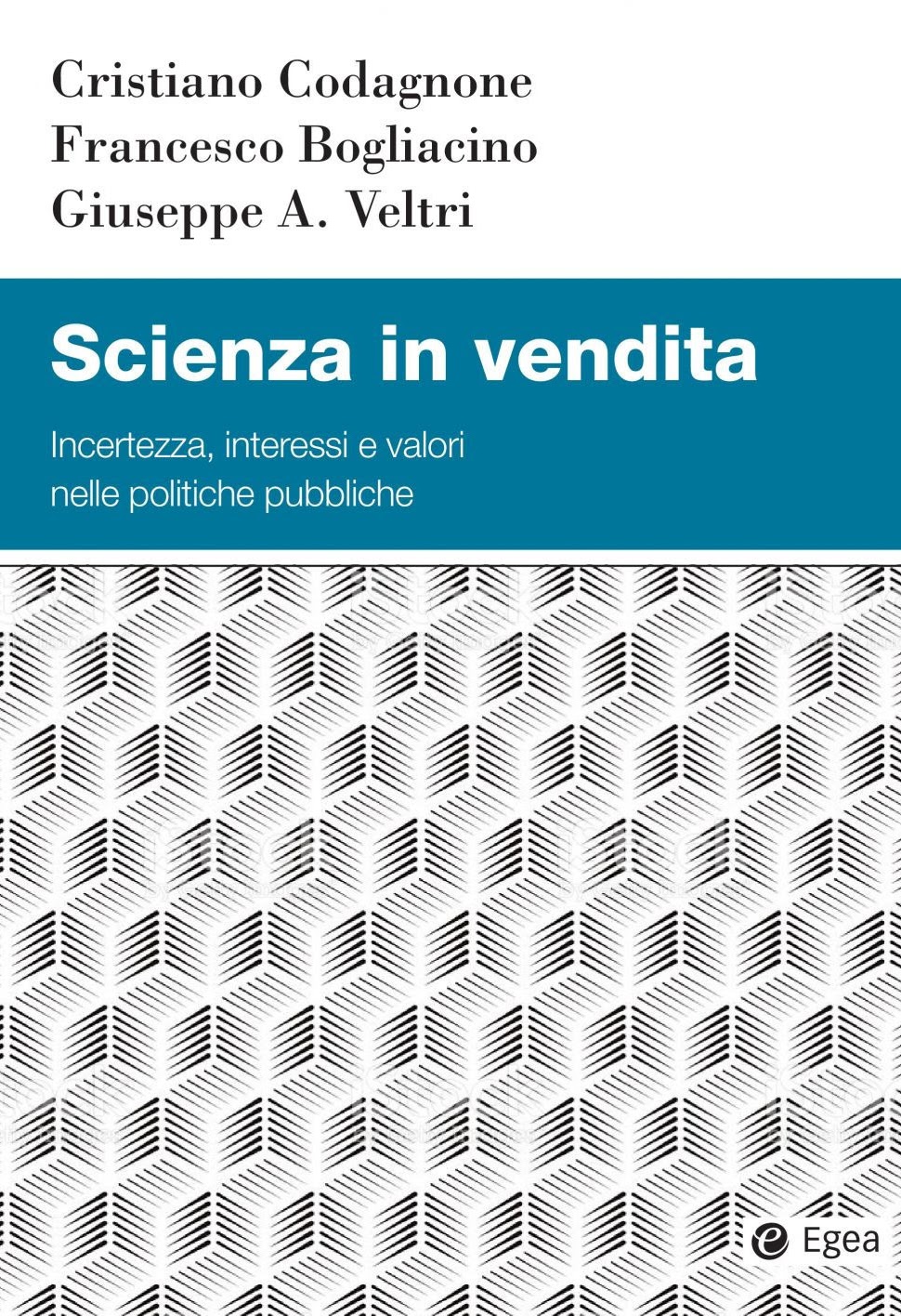
Scritto con Cristiano Codagnone e Francesco Bogliacino.
Scienza in vendita analizza il rapporto tra decisioni politiche ed evidenza empirica nella definizione delle politiche pubbliche. È un libro che parla di narrazioni e di retoriche, ma non sceglie la strada della critica post-moderna. Cerca, piuttosto, di uscire dalla gabbia delle opposte narrative in conflitto, per cercare di decostruirne le retoriche e fornire qualche strumento per capire dove risieda la verità. Il quadro concettuale di riferimento, definito triangolo delle politiche, analizza lo spazio della politica pubblica come un campo di forze determinato da tre coordinate: incertezza, valori e interessi, e dove l’evidenza che si produce riflette il radicamento sociale degli attori coinvolti. Attraverso questo quadro interpretativo si può mostrare che non esiste un’unica alternativa per strutturare il rapporto tra evidenza scientifica e politiche, ma che ci sono diverse soluzioni a seconda della rilevanza delle forze in gioco.
Disponibile qui e nei maggiori negozi di libri online.
Fuori dalla bolla, politica e vita quotidiana nell’era della post-verità (Mimesis, 2017)

Scritto con Giuseppe Di Caterino.
Dalla Brexit all’elezione di Trump, dal referendum costituzionale al dibattito politico quotidiano, le bolle informative della Rete stanno trasformando il processo politico e democratico con una radicalizzazione delle posizioni in campo e un assottigliamento degli spazi di confronto o sintesi. Un meccanismo che favorisce le narrative populiste, mentre quelle riformiste si mostrano incerte, senza una propria prospettiva culturale sul modo di abitare la Rete. Ma quali sono le leve socio-psicologiche alla base di tali dinamiche? E cosa si può fare per scongiurare la regressione cui sembra irreversibilmente condannata la nostra democrazia?
Disponibile qui e nei maggior negozi di libri online
Recensioni
Francesco Cardinali - Mind, febbraio 2018
“La forza creativa dei dati”
Andrea Mammone - huffingtonpost.it, 11 dicembre 2017
“Il lato falso e ingannevole dell’informazione”
Leonardo Petrocelli - La Gazzetta del Mezzogiorno, 15 settembre 2017
“Si, menzogne, ma la rete non ha solo lati oscuri”
Maurizio Mannoni - Tg3 Linea Notte (Rai Tre), 3 ottobre 2017
“Linea Notte del 03/10/17”
Gioacchino Toni - carmillaonline.com, 24 settembre 2017
“Illusioni partecipative. Il populismo della/nella rete nell’era della post-verità”
Guido Barlozzetti - Il Caffè di Rai Uno, 2 settembre 2017
“Il caffè di RaiUno”
Marco Brunazzo - Corriere del Trentino, 24 agosto 2017
“Le bolle informative e la rete, come fare per evitarle”
M.Br. - Corriere del Trentino, 2 agosto 2017
“Internet e il rischio populismo”
Francesco Strippoli - Corriere del Mezzogiorno, 30 agosto 2017
“Le false notizie e i social ruffiani, ecco come si condiziona il lettore”
Alessandro Zaccuri - Avvenire, 13 agosto 2017
“La lingua del populismo”
R.D.P. - Il Messaggero, 23 luglio 2017
“La nuova politica in un mondo di false notizie”
Letizia Magnani - QN, 22 luglio 2017
“Fuori dalle bolle”
Pietro Del Soldà - Tutta la città ne parla (Radio Tre), 21 luglio 2017
“I lavori stranieri ci mettono in competizione?”

